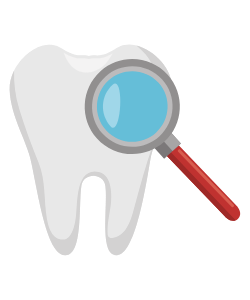Those minor dental imperfections can highly affect the quality of your smile and overall oral health in a big way. If you have chipped or stained teeth or cavities, teeth bonding could be a much less expensive option for you compared to porcelain veneers. A cosmetic dentist uses a tooth-coloured material such as resin to correct dental imperfections such as gaps, chips, discolouration and cracks and enhance the appearance of your teeth.
Could You Be a Candidate for Dental Bonding?
If your front teeth are discoloured, a cosmetic dentist can use resin to hide discolouration that teeth whitening won't correct. If your teeth are chipped, the dentist places the composite material in the chipped area to camouflage the chip and make the teeth smooth. Dental bonding is an effective cosmetic procedure for individuals with short teeth, teeth gaps and too-small teeth. Dental bonding could also be used to repair teeth cracks and chips and shape the tooth. If receding gums have exposed the root of your tooth, dental bonding can be used to cover it.
How Does the Dentist Complete Dental Bonding?
Teeth or dental bonding isn't a complicated procedure. The dentist doesn't use anaesthesia unless they have a decayed tooth to fill. The dentist first checks the colour of your teeth and then uses a shade guide to choose a resin or composite material that matches them. They then apply a conditioning liquid–phosphoric acid–to roughen the surface so the bonding material can properly adhere to the tooth.
After applying the composite material, the dentist then moulds and smoothens it to get the desired shape. The dentist uses the laser or ultraviolet light to harden the resin, trims the bonding material and finally polishes the material to make it look similar to the original tooth surface.
How Do You Care for the Bonded Tooth?
Although dental bonding isn't a permanent option, it may last for more than ten years if proper care is given. The natural tooth enamel is stronger than the bonded composite resin. Thus, you shouldn't bite or eat hard items such as ice, nutshells and plastics. If you do, the dental bond may crack or even fall out. If you usually clench or grind your teeth, mainly when sleeping, inform your dentist so they can fit a mouthguard to ensure the dental bond doesn't split because of the grinding pressure.
Floss daily and brush twice a day at home. This way, you won't damage your dental bond and tooth enamel or even aggravate the gums. Since the dental bonding material or resin used can also be stained, reduce the amount of red wine, coffee and other dark-coloured beverages you drink. Talk to your dentist today to get more tips.
Share
